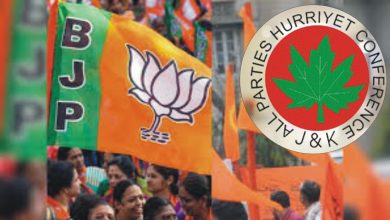Shift from Urdu to Hindi in IIOJK’s official communications raises fear of cultural erosion
 Srinagar: A growing shift from Urdu to Hindi in official communications within Indian illegally occupied Jammu and Kashmir (IIOJK) has raised alarm over the erosion of the territory’s linguistic, cultural heritage, and its Muslim identity.
Srinagar: A growing shift from Urdu to Hindi in official communications within Indian illegally occupied Jammu and Kashmir (IIOJK) has raised alarm over the erosion of the territory’s linguistic, cultural heritage, and its Muslim identity.
According to Kashmir Media Service, once secondary to Urdu, Hindi is now increasingly replacing the latter in government press releases and official documents in IIOJK. The Department of Information and Public Relations, alongside other government bodies, has adopted Hindi for various communications, including the naming of government schemes and initiatives. Common Hindi terms such as “Prashasan” (administration), “Bhavan” (building), “Divas” (day), “Satarak” (alert), “Abhiyan” (campaign), and “Atmanirbhar” (self-reliant) now frequently appear in official releases, replacing the traditional Urdu equivalents. This shift represents a stark departure from the historical predominance of Urdu in the occupied territory.
The growing prevalence of Hindi in official documentation has sparked unease among cultural and linguistic observers, particularly those committed to preserving Urdu, a language long integral to IIOJK’s heritage.
Cultural commentators argue that this shift is part of a broader effort on the part of BJP-led Hindutva government in India to marginalize elements of Kashmir’s Muslim culture and history, as Urdu has traditionally been associated with the Muslim identity of the territory. Experts fear that the diminishing use of Urdu in official discourse signals a deeper cultural and historical sidelining of Kashmir’s heritage.
A prominent linguist, speaking anonymously for fear of government reprisals, expressed deep concern about the decreasing use of Urdu in official communications, calling it a troubling sign of the erosion of Kashmir’s cultural legacy. “The systematic neglect of a language that is deeply woven into Kashmir’s history and culture is unfortunate and speaks to a larger cultural marginalization,” he remarked, highlighting the potential long-term consequences for IIOJK’s identity and heritage.








